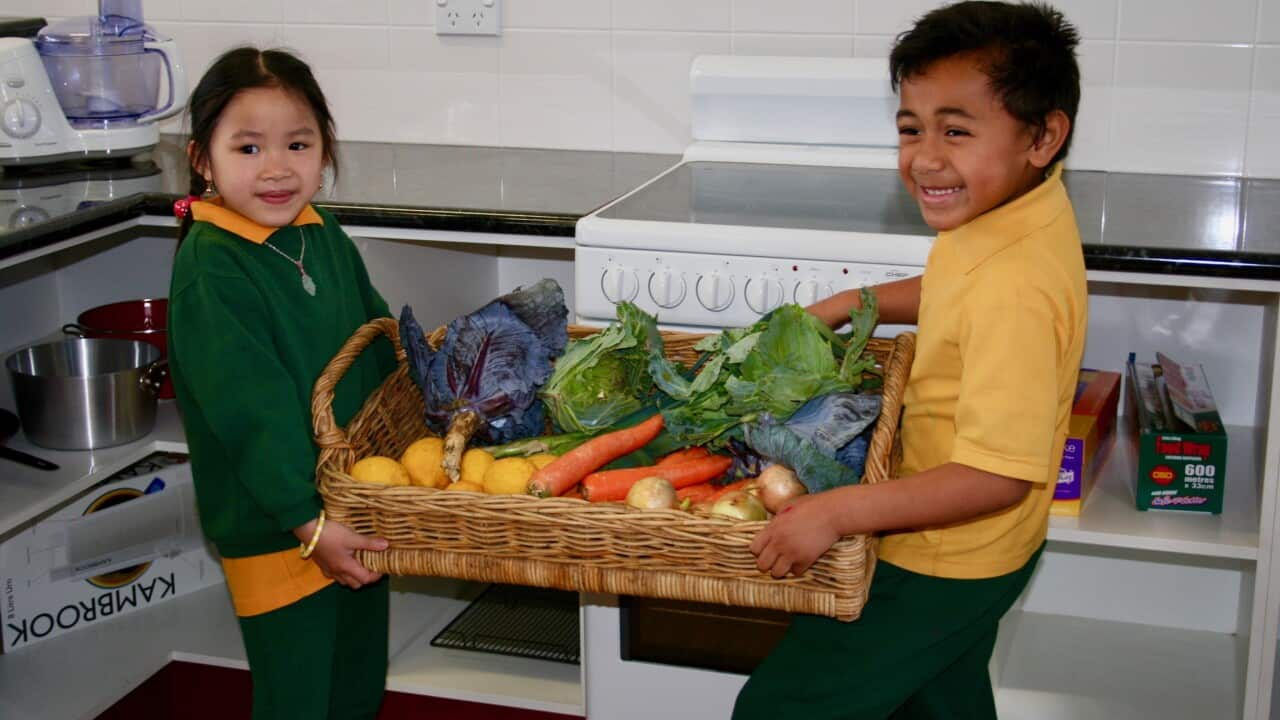Look! It’s adorable 11-year-old New York City food critic Luca Marconi judging the quality of waffles on his Instagram! Please, do enjoy this moment of food-mood elevation. It will prepare you for a gloomier one: our species has compromised the systems of the material world, including its food supply. Also, our species is yet to do anything meaningful to clean up its own dirty mess.
I know, right? What a downer. It’s a downer so extreme, I find myself forgetting it, no matter how many people in lab coats remind me. Then, I pop into the garden and remember it again. It’s one thing to learn the sum of scientific knowledge; it’s another to see your backyard cabbage crop devoured by midwinter moths. When I asked one moth what business she had laying eggs on my brassica leaves so early, she answered, “Global warming, Human. Don’t you read the news?” Shortly before her death by pyrethrum, she added, “If you think I’m bad, just you wait until the summer.”
It’s one thing to learn the sum of scientific knowledge; it’s another to see your backyard cabbage crop devoured by midwinter moths. When I asked one moth what business she had laying eggs on my brassica leaves so early, she answered, “Global warming, Human. Don’t you read the news?” Shortly before her death by pyrethrum, she added, “If you think I’m bad, just you wait until the summer.”

For gardeners, the effects of climate change are hard to overlook. Source: Ben Symons
Mothy made a good case: the coming season is likely to be one of miserable drought. Summer will bite our food producers hard as it nibbles away at my veg patch. As it gnaws at the very great number of us city dwellers who like to grow a little food.
When I asked one moth what business she had laying eggs on my brassica leaves so early, she answered, “Global warming, Human. Don’t you read the news?”
Around half of us cultivate something-or-other we’ll eventually put in our mouths. So, this hot season, more than half of us will be obliged to adapt. None of us who potters in yards or on balconies can expect much from our tomato plants this December; all of us are about to receive a hot and hands-on lesson in climate change.
First, there is a silver lining to this very hot nimbus of dread: home herb and veg producers can – i.e. must – try new crops. Throw out your gardening almanacs and bring in new seeds because, who knows, okra might even have a chance these days in the cold of Tasmania. Okra is a hardy cultivar that can withstand dry heat. Pick it early for use in most South-East Asian dishes, but let it mature and shrivel a little to give your gumbo glue.
None of us who potters in yards or on balconies can expect much from our tomato plants this December; all of us are about to receive a hot and hands-on lesson in climate change.
Perhaps, like me, you are compelled by a force far greater than good sense to grow tomatoes. If so, try a smaller fruiting variety. Start a baby berry like Black Cherry, Yellow Currant or Tommy Toe from seed now, harvest early and save water. Just generally forget about thirsty whoppers of any sort and expect good things from your basil and so many of your herbs. Choose things that are, like Luca Marconi, small and quick to mature. And if you won’t take my advice to grow the delightful radish, take that of Andrew McConnell, a chef who makes use of the watermelon radish.
We change crops, but we also change our habits. We now treat water as it is: precious elixir. I do not enjoy rising early with a watering can, but the veg show their appreciation by suffering fewer deaths. Water applied at dusk may result in fungus, which may result in wilting plants, which may delude me that they’re begging for more water when, in fact, they’re yelling: “Here comes the twilight tsunami to kill us with moisture and blight” and “She has the intellectual capacity of okra.”
I learned, eventually, to listen to an angry plant. If it wilts no matter the water, I’ve overwatered. If it wilts only in the afternoon, I’m doing okay. If I mulch around the plant – not up to its stem again; how do you expect the water to get in through all that hay, Okra Brain? – it has a far better chance of survival.
All would have a better shot at survival, really, if all would take the advice of angry plants.
Helen Razer is your frugal food enthusiast, guiding you to the good eats, minus the pretension and price tag in her weekly Friday column, Cheap Tart. Don't miss her next instalment, follow her on Twitter @HelenRazer.
Share
SBS Food is a 24/7 foodie channel for all Australians, with a focus on simple, authentic and everyday food inspiration from cultures everywhere. NSW stream only. Read more about SBS Food
Have a story or comment? Contact Us





